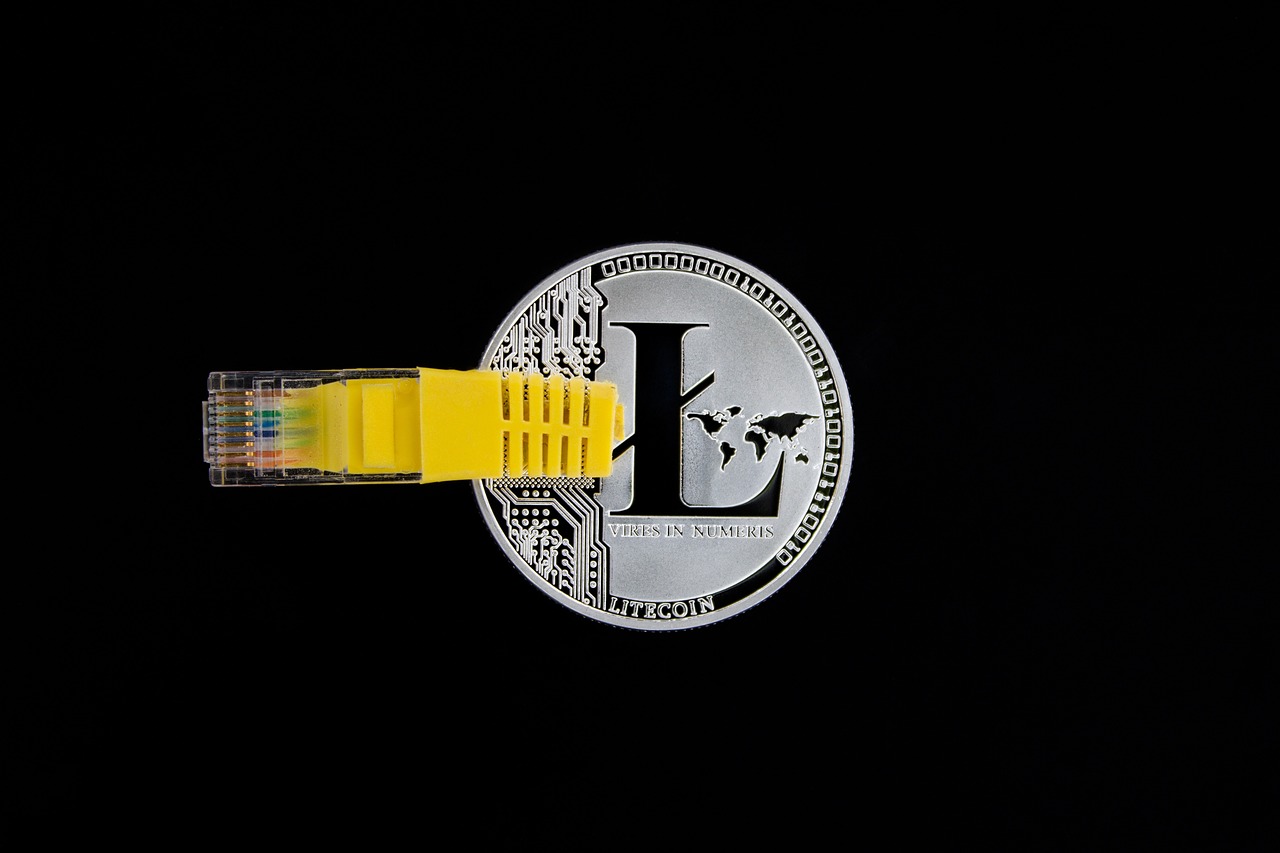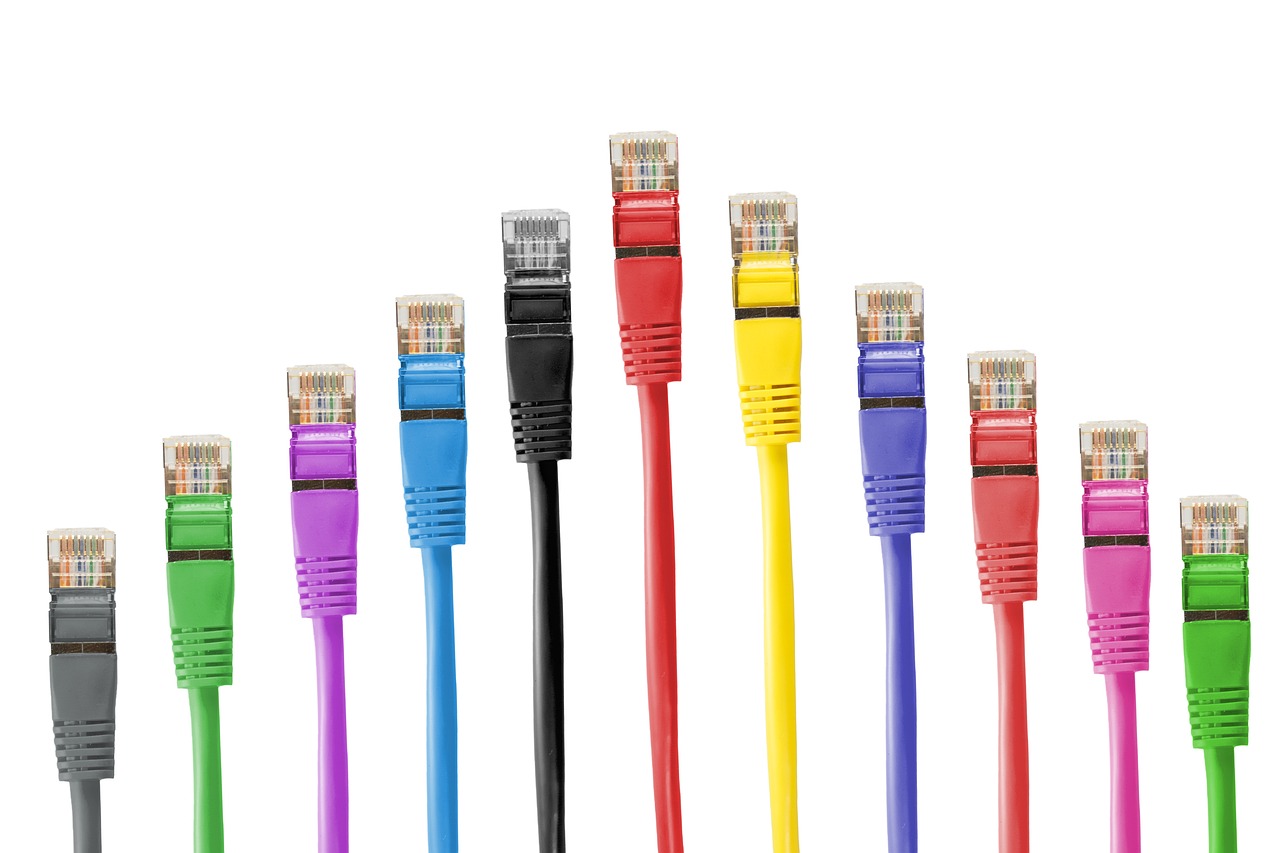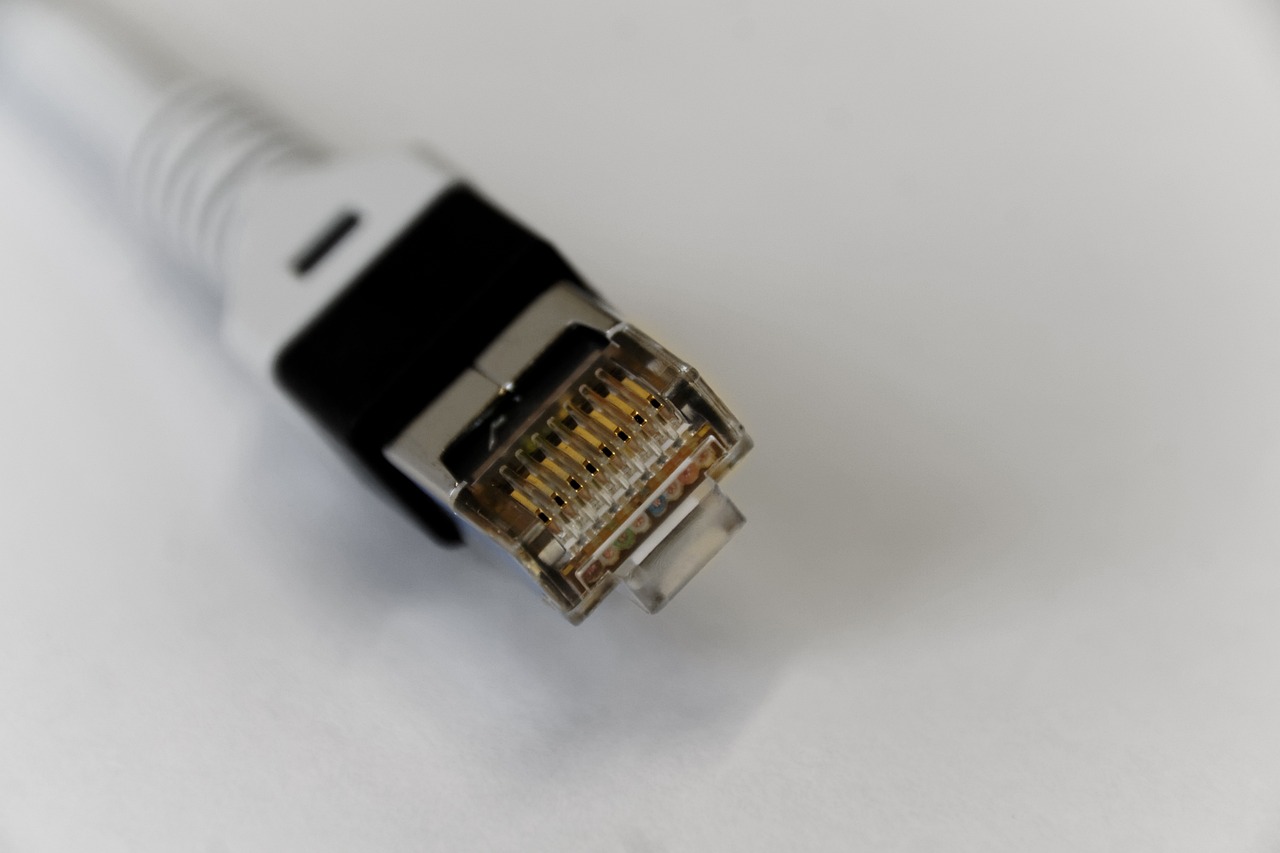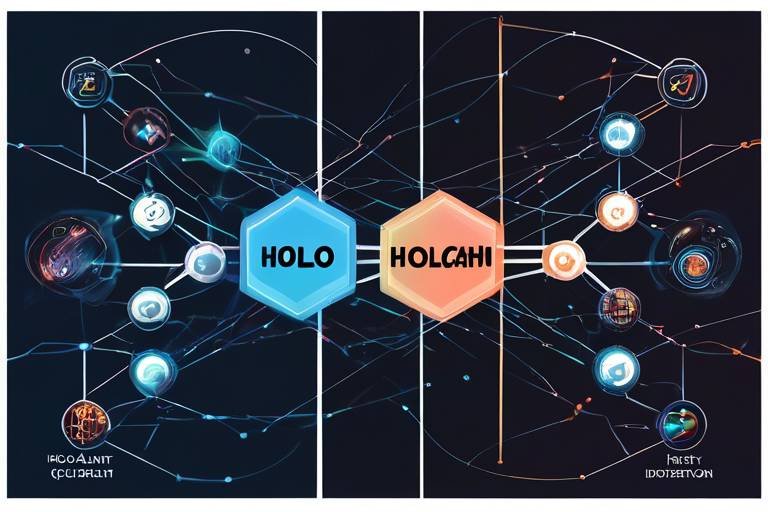NKN - Decentralized Networking Explained
NKN, or the New Kind of Network, is revolutionizing the way we think about networking. Imagine a world where your data flows seamlessly between devices without the need for a central authority. Sounds exciting, right? That's exactly what NKN brings to the table. By utilizing a decentralized networking protocol, it enables **peer-to-peer communication** that not only enhances security but also improves scalability and efficiency. In an era where digital privacy is paramount, NKN stands out as a beacon of innovation, promising to transform traditional networking models into something more resilient and user-centric.
NKN is a groundbreaking decentralized networking protocol designed to facilitate direct communication between users. By leveraging the power of **blockchain technology**, NKN creates a more secure and efficient method for transmitting data across networks. This means that instead of relying on traditional centralized servers that can be vulnerable to attacks and outages, NKN allows data to be sent directly between devices. It's like having a network of friends passing notes to each other rather than sending them through a potentially nosy teacher!
So, what makes NKN truly special? Here are some of its standout features:
- Decentralized Data Transmission: Data is transmitted directly between users, enhancing security and reducing the risk of data breaches.
- Enhanced Privacy: NKN prioritizes user privacy through encryption, ensuring confidential communication.
- Scalability: The network can easily expand as more users join, adapting to increasing demand without sacrificing performance.
These features set NKN apart from traditional networking solutions, providing users with a more robust and flexible experience.
At the heart of NKN's architecture is its decentralized data transmission capability. This innovative approach allows users to communicate directly without the need for centralized servers. Think of it as a neighborhood where everyone can chat over the garden fence instead of having to go through a community center. This direct line of communication not only enhances security but also minimizes the risk of data breaches and downtime. In a world where data privacy is becoming increasingly critical, this feature is a game changer.
Decentralization is not just a buzzword; it comes with a host of benefits that can reshape the future of networking:
- Minimized Single Points of Failure: With no central server, the risk of a complete network failure is significantly reduced.
- Improved Network Resilience: The network can adapt and recover from disruptions more easily.
- User Empowerment: Users gain control over their own data, leading to a more democratic internet experience.
This shift in power dynamics is essential for the future of networking, as it fosters an environment where users can feel safe and in control.
However, it's not all sunshine and rainbows. Decentralization also comes with its own set of challenges. For instance, managing a decentralized network can be complex, and getting users on board with a new system takes time and education. Understanding these challenges is crucial for the successful implementation of NKN in real-world applications. It’s like trying to get everyone in your neighborhood to agree on a new community rule—it takes effort, but the benefits can be worth it!
In today's digital landscape, where data breaches are alarmingly common, NKN places a strong emphasis on privacy and security. By encrypting data and ensuring that communication remains confidential, NKN provides a safe haven for users. This focus on security is not just a feature; it's a necessity. With cyber threats lurking around every corner, having a protocol that prioritizes user safety is more important than ever.
The versatility of NKN's architecture opens the door to a wide range of use cases. From enhancing IoT communications to supporting decentralized applications (dApps), NKN is poised to make a significant impact across various industries. Let's dive into some exciting applications:
As the number of connected devices continues to grow, NKN can significantly enhance IoT communications. By providing a secure and efficient platform for devices to communicate with each other, NKN addresses the challenges of data security and network congestion that often plague traditional IoT systems. Imagine smart home devices that can talk to each other directly, sharing information in real-time without the risk of being intercepted by malicious actors. That's the power of NKN!
Furthermore, the NKN protocol supports the development of decentralized applications, allowing developers to create innovative solutions that leverage peer-to-peer networking. This opens up a world of possibilities for creating applications that are not only more efficient but also provide a better user experience. Think of it as building a new digital city where every building is connected, but no single entity controls the entire landscape.
Q: What is the main advantage of using NKN?
A: The main advantage of NKN is its ability to enable secure, decentralized peer-to-peer communication without relying on centralized servers, which enhances privacy and reduces the risk of data breaches.
Q: How does NKN ensure data privacy?
A: NKN ensures data privacy by encrypting all communications, making it difficult for unauthorized parties to access sensitive information.
Q: What are some practical applications of NKN?
A: NKN can be used in various applications, including IoT communications, decentralized applications, and secure data transmission for businesses.

What is NKN?
NKN, or the New Kind of Network, is a revolutionary decentralized networking protocol designed to facilitate peer-to-peer communication in a way that traditional networking solutions simply can't match. Imagine a world where your data flows seamlessly between devices without the need for centralized servers or intermediaries—this is the essence of NKN. By leveraging the power of blockchain technology, NKN creates a network that is not only secure but also incredibly efficient, allowing users to transmit data directly to one another.
At its core, NKN aims to redefine how we think about networking. Instead of relying on traditional models where data is sent through a series of servers, NKN enables a direct and decentralized flow of information. This transformation is akin to switching from a crowded highway filled with traffic lights to a wide-open road where vehicles can move freely. With NKN, users can connect without the bottlenecks typically caused by centralized systems, leading to faster and more reliable communication.
One of the standout features of NKN is its ability to adapt to the needs of various applications and industries. Whether it's for Internet of Things (IoT) devices, mobile applications, or even decentralized finance (DeFi) platforms, NKN's architecture is flexible enough to support a wide range of use cases. This adaptability is crucial as we move into an era where connectivity is paramount, and the demand for efficient networking solutions continues to grow.
Furthermore, NKN's decentralized nature not only enhances performance but also significantly improves security. In a world where data breaches and cyberattacks are all too common, the ability to communicate without a central point of vulnerability is a game-changer. By encrypting data and ensuring that it travels directly between users, NKN minimizes the risk of interception and unauthorized access.
In summary, NKN represents a paradigm shift in networking, offering a decentralized, secure, and efficient way for users to communicate. As we continue to explore the potential of this innovative protocol, it's clear that NKN is not just another networking solution—it's a vision for the future of connectivity.

Key Features of NKN
NKN offers a plethora of key features that set it apart from traditional networking solutions. One of the most significant aspects is its decentralized data transmission, which allows data to flow directly between users. This means that instead of relying on a central server that can become a bottleneck or a target for attacks, users can communicate directly, enhancing both speed and security. Imagine a bustling marketplace where vendors interact directly with customers without needing a middleman; that’s the essence of NKN’s approach.
Another standout feature is the enhanced privacy that NKN provides. In a world where data breaches are alarmingly common, NKN employs robust encryption methods to ensure that communication remains confidential. This is akin to sending a message in a sealed envelope rather than a postcard—only the intended recipient can read it. By prioritizing user privacy, NKN not only protects sensitive information but also fosters trust among its users.
Scalability is yet another crucial feature of NKN. As networks expand and more devices connect, traditional systems often struggle to keep up. NKN’s architecture is designed to scale effortlessly, accommodating a growing number of users and devices without compromising performance. This scalability is essential for the future, especially as we move towards a more interconnected world where the Internet of Things (IoT) is becoming increasingly prevalent.
To summarize, here are the key features of NKN:
- Decentralized Data Transmission: Direct communication between users without centralized servers.
- Enhanced Privacy: Robust encryption to ensure confidential communication.
- Scalability: Ability to accommodate a growing number of users and devices seamlessly.
In addition to these features, NKN also promotes network resilience. By eliminating single points of failure, the network becomes more robust against attacks and outages. This resilience is crucial in maintaining continuous service, especially in critical applications like healthcare or finance where downtime can have severe consequences.
However, it’s important to note that with these advantages come certain challenges. For instance, managing a decentralized network can be complex, and user adoption remains a significant hurdle. But as we continue to explore the potential of NKN, it becomes clear that the benefits far outweigh the challenges, paving the way for a revolutionary shift in how we think about networking.

Decentralized Data Transmission
NKN revolutionizes the way we think about data transmission by employing a decentralized architecture. Unlike traditional networks that rely heavily on centralized servers, NKN allows data to flow directly between users, creating a more fluid and efficient communication channel. Imagine a bustling city where people can exchange information freely without having to go through a single gate; that's the essence of decentralized data transmission. This method not only enhances the speed of communication but also significantly boosts security by minimizing the risk of data interception and breaches.
One of the standout features of NKN's decentralized model is its ability to reduce latency. In conventional setups, data often travels through multiple servers, which can slow down the process and create bottlenecks. With NKN, data takes the most direct route, leading to faster delivery times. This is particularly important for applications that require real-time data exchange, such as gaming or video conferencing, where every millisecond counts.
Furthermore, the decentralized nature of NKN contributes to a more resilient network. When a traditional server goes down, the entire network can be impacted, leading to downtime and frustration for users. However, in a decentralized system, if one node fails, the others continue to operate seamlessly, ensuring that communication remains uninterrupted. This resilience is akin to a web of interconnected threads; if one thread snaps, the others hold the fabric together.
Moreover, decentralized data transmission aligns perfectly with the growing demand for privacy. In a world where data breaches are rampant, users are increasingly concerned about who has access to their information. NKN addresses this issue by ensuring that data is encrypted and only accessible to the intended recipients. This level of privacy is crucial in maintaining user trust and fostering a safer online environment.
To illustrate the advantages of decentralized data transmission, consider the following table that compares traditional centralized systems with NKN's decentralized approach:
| Feature | Centralized Systems | NKN Decentralized Systems |
|---|---|---|
| Data Transmission | Relies on central servers | Direct peer-to-peer communication |
| Latency | Higher due to multiple hops | Lower with direct routing |
| Network Resilience | Single point of failure | Multiple nodes ensure continuity |
| Privacy | Vulnerable to data breaches | Encrypted and secure |
In conclusion, the decentralized data transmission model employed by NKN not only enhances the efficiency and speed of data exchange but also fortifies security and resilience. As we move forward into a more connected world, the importance of adopting such innovative solutions cannot be overstated. It's clear that NKN is paving the way for a new era of networking that prioritizes user control and privacy.
- What is NKN? NKN stands for New Kind of Network, a decentralized networking protocol that facilitates peer-to-peer communication.
- How does NKN enhance security? NKN encrypts data and allows direct communication between users, reducing the risk of interception.
- What are the benefits of decentralized data transmission? Benefits include lower latency, improved resilience, and enhanced privacy for users.
- Can NKN be used for IoT devices? Yes, NKN provides a secure and efficient platform for IoT communications.
- What challenges does NKN face? Challenges include network management and user adoption, which are essential for its successful implementation.

Benefits of Decentralization
Decentralization is more than just a buzzword; it's a revolutionary shift in how we approach networking and data management. One of the most significant benefits of decentralization is the reduction of single points of failure. In traditional centralized systems, if a server goes down, the entire network can be affected. However, with NKN's decentralized architecture, data is transmitted directly between users. This means that even if one node fails, the network continues to function smoothly, much like a web where each strand supports the others. This inherent resilience is crucial in ensuring uninterrupted service.
Moreover, decentralization empowers users by giving them control over their data. In a centralized model, users often have to trust third parties with their information, which can lead to concerns about privacy and security. With NKN, users can engage in peer-to-peer communication without the fear of their data being mismanaged or exploited. This shift in power dynamics not only enhances user confidence but also fosters a sense of community among participants.
Another notable benefit is the potential for improved scalability. As more users join the network, the capacity to handle increased data traffic grows organically. Each new participant adds to the network's resources, allowing it to adapt and expand without the need for significant infrastructure investment. This scalability is essential in today’s fast-paced digital world, where the demand for data transmission is ever-increasing.
Lastly, decentralization promotes innovation. By removing the constraints of centralized control, developers are free to create and implement new ideas without bureaucratic hurdles. This environment encourages creativity and experimentation, leading to groundbreaking applications that can transform various industries. For instance, think of how the rise of decentralized finance (DeFi) has opened up new avenues for financial services that were previously inaccessible to many.
In summary, the benefits of decentralization are profound and far-reaching. From enhanced resilience and user empowerment to improved scalability and encouragement of innovation, NKN is paving the way for a new era in networking. As we continue to explore the potential of decentralized systems, it's clear that this shift is not just a trend but a fundamental change that can redefine how we connect and communicate.

Challenges of Decentralization
While the concept of decentralization in networking is revolutionary, it doesn’t come without its share of challenges. One of the primary hurdles is network management. In a decentralized system, there isn't a central authority to oversee operations, which can lead to complications in maintaining network performance and reliability. Imagine trying to manage a large group of people without a leader; it can quickly become chaotic!
Another significant challenge is user adoption. Many users are accustomed to traditional networking models where they rely on centralized servers. Shifting to a decentralized model requires a change in mindset and often a learning curve. To illustrate, consider how people were initially hesitant to use online banking due to security concerns, yet now it’s a common practice. Similarly, convincing users to embrace NKN's decentralized approach will take time and effective education.
Moreover, interoperability can be a tricky issue. Different decentralized networks may not communicate seamlessly with each other, leading to fragmentation. For instance, think of it like trying to connect different brands of smart home devices that don’t speak the same language. This lack of standardization can hinder the overall effectiveness of decentralized networks.
Lastly, security threats still exist, even in decentralized frameworks. While decentralization can enhance security by eliminating single points of failure, it can also create new vulnerabilities. For example, if a user’s device is compromised, it can lead to unauthorized access within the decentralized network. Thus, continuous vigilance and robust security measures are essential to protect against these evolving threats.
In summary, while decentralization offers numerous benefits, it also introduces complexities that need to be addressed. By understanding and tackling these challenges head-on, we can pave the way for a more resilient and user-friendly decentralized networking future.
- What is NKN? NKN stands for New Kind of Network, which is a decentralized networking protocol that facilitates peer-to-peer communication.
- How does NKN enhance security? NKN enhances security by encrypting data and allowing direct communication between users, minimizing the risk of data breaches.
- What are some use cases for NKN? NKN is applicable in various fields, including IoT communications and the development of decentralized applications (dApps).
- What are the main challenges of decentralization? The main challenges include network management, user adoption, interoperability, and potential security threats.

Enhanced Privacy and Security
In today's digital world, where data breaches and privacy concerns are rampant, are not just luxuries; they are necessities. NKN takes these concerns seriously by implementing cutting-edge encryption techniques that ensure user data remains confidential and secure. Imagine sending a letter sealed in an unbreakable envelope; that's how NKN protects your data during transmission. By prioritizing user privacy, NKN not only safeguards personal information but also fosters a sense of trust among its users.
One of the standout features of NKN is its ability to facilitate peer-to-peer communication without the need for intermediaries. This means that users can connect directly with one another, significantly reducing the chances of data interception. Think of it like having a private conversation in a room with no windows – it’s just you and the other person, free from eavesdroppers. This direct connection is a game-changer, especially in an age where centralized platforms often become targets for hackers and malicious entities.
Moreover, NKN's decentralized architecture empowers users to control their own data. With traditional networking systems, users often surrender their data to centralized servers, which can be vulnerable to breaches. In contrast, NKN allows users to retain ownership of their information, making it much harder for unauthorized parties to access it. This shift not only enhances security but also aligns with the growing demand for data sovereignty in the digital age.
To illustrate the importance of privacy and security in NKN, consider the following key aspects:
| Feature | Description |
|---|---|
| Data Encryption | Ensures that all data transmitted over the network is encrypted, making it unreadable to anyone without the proper decryption key. |
| Decentralized Control | Users maintain control over their data, reducing the risk of unauthorized access and data breaches. |
| Peer-to-Peer Communication | Direct connections between users eliminate the need for centralized servers, lowering the risk of interception. |
In summary, NKN’s emphasis on positions it as a leading solution in the realm of decentralized networking. By providing users with robust tools to protect their data, NKN not only addresses current security challenges but also sets a new standard for future networking protocols.
- How does NKN ensure data security?
NKN uses advanced encryption methods to protect data during transmission, ensuring that only intended recipients can access it. - What are the benefits of decentralized communication?
Decentralized communication reduces the risk of data breaches, enhances user control over data, and improves overall network resilience. - Can NKN be used for IoT applications?
Yes, NKN is particularly effective for IoT communications, providing a secure and efficient platform for connected devices.

Use Cases of NKN
This article explores the concept of NKN, a decentralized networking protocol, its significance, and how it transforms traditional networking by enabling peer-to-peer communication while enhancing security, scalability, and efficiency.
NKN, or the New Kind of Network, is a decentralized networking protocol that facilitates peer-to-peer communication. It leverages blockchain technology to create a more secure and efficient way to transmit data across networks.
NKN offers several key features, including decentralized data transmission, enhanced privacy, and scalability. These features differentiate NKN from traditional networking solutions, providing users with a more robust and flexible networking experience.
NKN utilizes a decentralized architecture that allows data to be transmitted directly between users without relying on centralized servers. This approach enhances security and reduces the risk of data breaches and downtime.
Decentralization minimizes single points of failure, improves network resilience, and empowers users by giving them control over their data. This shift in power dynamics is crucial for the future of networking.
Despite its benefits, decentralization presents challenges such as network management and user adoption. Understanding these challenges is essential for the successful implementation of NKN in real-world applications.
NKN prioritizes user privacy by encrypting data and ensuring that communication remains confidential. This focus on security is vital in today's digital landscape, where data breaches are increasingly common.
NKN's unique architecture enables a wide range of use cases, from IoT communications to decentralized applications (dApps). Exploring these applications highlights the versatility and potential of NKN in various industries. For instance, in the realm of IoT communications, NKN can significantly enhance the way devices interact, providing a secure and efficient platform for devices to communicate with each other. This capability is critical as the number of connected devices continues to grow exponentially. Imagine a world where your refrigerator can communicate with your grocery store to automatically order milk when you're running low—this is the future that NKN supports.
Furthermore, NKN's support for decentralized applications opens up a plethora of opportunities for developers. By utilizing NKN, developers can create innovative solutions that leverage peer-to-peer networking for improved performance and user experience. For example, consider a decentralized social media platform where users can share content without the fear of censorship or data exploitation. The potential applications are vast and varied, making NKN a game-changer in the tech landscape.
To illustrate the versatility of NKN, let's take a look at some specific use cases:
| Use Case | Description |
|---|---|
| IoT Communications | Secure and efficient communication between connected devices, enabling smart homes and cities. |
| Decentralized Applications (dApps) | Applications that run on a peer-to-peer network, offering enhanced privacy and user control. |
| File Sharing | Decentralized file sharing solutions that reduce reliance on centralized servers, enhancing security. |
| Gaming | Peer-to-peer gaming platforms that enhance user experience by reducing latency and improving connectivity. |
Overall, the potential of NKN extends far beyond just these examples. With its decentralized nature and focus on security, it paves the way for a new era of networking that prioritizes user empowerment and privacy.
1. What are the main benefits of using NKN?
NKN provides enhanced privacy, security, and a decentralized approach to networking that reduces reliance on centralized servers.
2. How does NKN improve IoT communications?
NKN offers a secure platform for devices to communicate directly, which is essential as the number of IoT devices continues to rise.
3. Can developers create applications using NKN?
Yes! NKN supports the development of decentralized applications, allowing developers to leverage its unique networking capabilities.
4. What challenges does NKN face?
Challenges include network management and user adoption, which are crucial for the successful implementation of NKN in real-world scenarios.

IOT Communications
The Internet of Things (IoT) is revolutionizing the way we interact with technology, and NKN is at the forefront of this transformation. Imagine a world where your refrigerator can communicate with your grocery store, or your thermostat can adjust itself based on your preferences and real-time weather data. This is not just a futuristic dream; it's becoming a reality, thanks to decentralized networking protocols like NKN.
NKN provides a robust framework for IoT communications that is both secure and efficient. Traditional IoT solutions often rely on centralized servers, which can be vulnerable to failures and attacks. However, with NKN's decentralized approach, data is transmitted directly between devices, creating a more resilient network that minimizes the risk of data breaches. This means that even if one device goes down, the rest of the network can continue to function seamlessly.
One of the standout features of NKN in the context of IoT is its ability to scale effortlessly. As more devices come online, the network can adapt without the need for extensive infrastructure upgrades. This scalability is crucial as we enter an era where billions of devices are expected to be interconnected. In fact, experts predict that by 2025, there will be over 75 billion IoT devices globally. NKN's architecture is designed to handle this exponential growth, ensuring that communication remains fast and reliable.
Furthermore, security is a paramount concern in the IoT landscape. With NKN, data is encrypted during transmission, which means that even if someone intercepts the communication, they won't be able to decipher the information. This level of security is essential for applications that handle sensitive data, such as health monitoring devices or smart home systems. In a world where data breaches are all too common, NKN offers peace of mind to both consumers and businesses.
To illustrate the impact of NKN on IoT communications, consider the following use cases:
- Smart Homes: Devices like smart locks and security cameras can communicate directly with each other, enhancing the overall security and efficiency of home automation systems.
- Healthcare: Wearable devices can send real-time health data to healthcare providers without the risk of data interception, allowing for timely interventions when necessary.
- Agriculture: Sensors in fields can relay information about soil conditions and crop health directly to farmers, enabling data-driven decisions that improve yield and sustainability.
In summary, NKN is not just another networking protocol; it is a game-changer for IoT communications. By facilitating secure, efficient, and decentralized data transmission, NKN empowers devices to communicate in ways that were previously unimaginable. As we continue to embrace the IoT revolution, the significance of protocols like NKN will only grow, paving the way for a more connected and intelligent world.
Q1: What is NKN?
A1: NKN, or New Kind of Network, is a decentralized networking protocol that facilitates peer-to-peer communication using blockchain technology.
Q2: How does NKN enhance IoT communications?
A2: NKN allows devices to communicate directly with each other in a decentralized manner, improving security, efficiency, and scalability.
Q3: What are the security features of NKN?
A3: NKN encrypts data during transmission, ensuring that communication remains confidential and protected against interception.
Q4: Can NKN handle the increasing number of IoT devices?
A4: Yes, NKN is designed to scale effortlessly, making it capable of handling billions of interconnected devices without compromising performance.
Q5: What are some practical applications of NKN in IoT?
A5: NKN can be used in smart homes, healthcare monitoring, and agriculture, among other fields, to facilitate secure and efficient communication.

Decentralized Applications
Decentralized Applications, commonly known as dApps, are transforming the way we interact with technology and each other in the digital realm. Unlike traditional applications that rely on centralized servers, dApps operate on a decentralized network, which means they are not controlled by a single entity. This shift is akin to moving from a single landlord who controls an entire apartment building to a community of homeowners who collectively manage their neighborhood. With NKN, the potential for dApps becomes even more pronounced, as it provides a robust framework for developers to build applications that leverage peer-to-peer networking.
The beauty of dApps lies in their ability to enhance user experience while maintaining a high level of security and privacy. For instance, imagine a social media platform where users own their data, and no single company can sell it for profit. This is the promise of dApps powered by NKN. By utilizing decentralized networks, these applications can offer features such as:
- Data Ownership: Users have complete control over their data, ensuring that it cannot be misused or exploited.
- Transparency: Every transaction and interaction is recorded on the blockchain, providing an open ledger that enhances trust.
- Resilience: With no central point of failure, dApps can remain operational even during outages or attacks.
Furthermore, NKN's architecture allows for seamless integration of decentralized applications across various sectors, including finance, healthcare, and entertainment. For example, in the financial sector, dApps can facilitate secure peer-to-peer transactions without intermediaries, reducing costs and increasing efficiency. In healthcare, patient data can be securely shared among providers without compromising privacy, fostering better collaboration and outcomes.
As we look to the future, the potential of dApps is limitless. They not only empower users but also drive innovation by enabling developers to create new solutions that were previously unimaginable. The landscape of technology is evolving, and those who embrace the decentralized paradigm will be at the forefront of this revolution.
What are dApps?
Decentralized Applications (dApps) are applications that run on a decentralized network, allowing for greater security, transparency, and user control compared to traditional applications.
How does NKN enhance dApps?
NKN provides a decentralized networking protocol that facilitates peer-to-peer communication, making it easier for dApps to operate without relying on centralized servers.
What industries can benefit from dApps?
Various industries can benefit from dApps, including finance, healthcare, supply chain management, and social media, as they promote transparency and user empowerment.
Are dApps secure?
Yes, dApps are generally more secure than traditional applications due to their decentralized nature, which reduces the risk of data breaches and unauthorized access.
Frequently Asked Questions
- What is NKN and how does it work?
NKN, or New Kind of Network, is a decentralized networking protocol that allows peer-to-peer communication. It uses blockchain technology to enable users to send and receive data directly without the need for centralized servers, making the process more secure and efficient.
- What are the key features of NKN?
NKN boasts several key features, including decentralized data transmission, enhanced privacy, and scalability. These features set it apart from traditional networking solutions, offering users a more robust and flexible experience in data communication.
- How does NKN enhance privacy and security?
NKN prioritizes user privacy by encrypting data and ensuring that all communications remain confidential. This focus on security is increasingly important in a digital landscape where data breaches are common, providing users with peace of mind.
- What are the benefits of decentralization in NKN?
Decentralization reduces single points of failure, enhances network resilience, and gives users greater control over their data. This shift in power dynamics is crucial for creating a more secure and efficient networking environment.
- What challenges does NKN face with decentralization?
While decentralization offers many benefits, it also presents challenges such as network management and user adoption. Addressing these challenges is vital for the successful implementation and growth of NKN in real-world applications.
- What use cases can benefit from NKN?
NKN's architecture supports various use cases, including IoT communications and decentralized applications (dApps). By facilitating secure and efficient communication between devices, NKN can significantly enhance the performance of connected systems.
- How does NKN improve IoT communications?
NKN provides a secure and efficient platform for IoT devices to communicate with one another. As the number of connected devices continues to grow, this capability becomes increasingly critical for ensuring seamless and reliable interactions.
- Can developers create decentralized applications using NKN?
Absolutely! NKN supports the development of decentralized applications, allowing developers to harness peer-to-peer networking for improved performance and user experience. This opens up a world of innovative solutions across various industries.



















